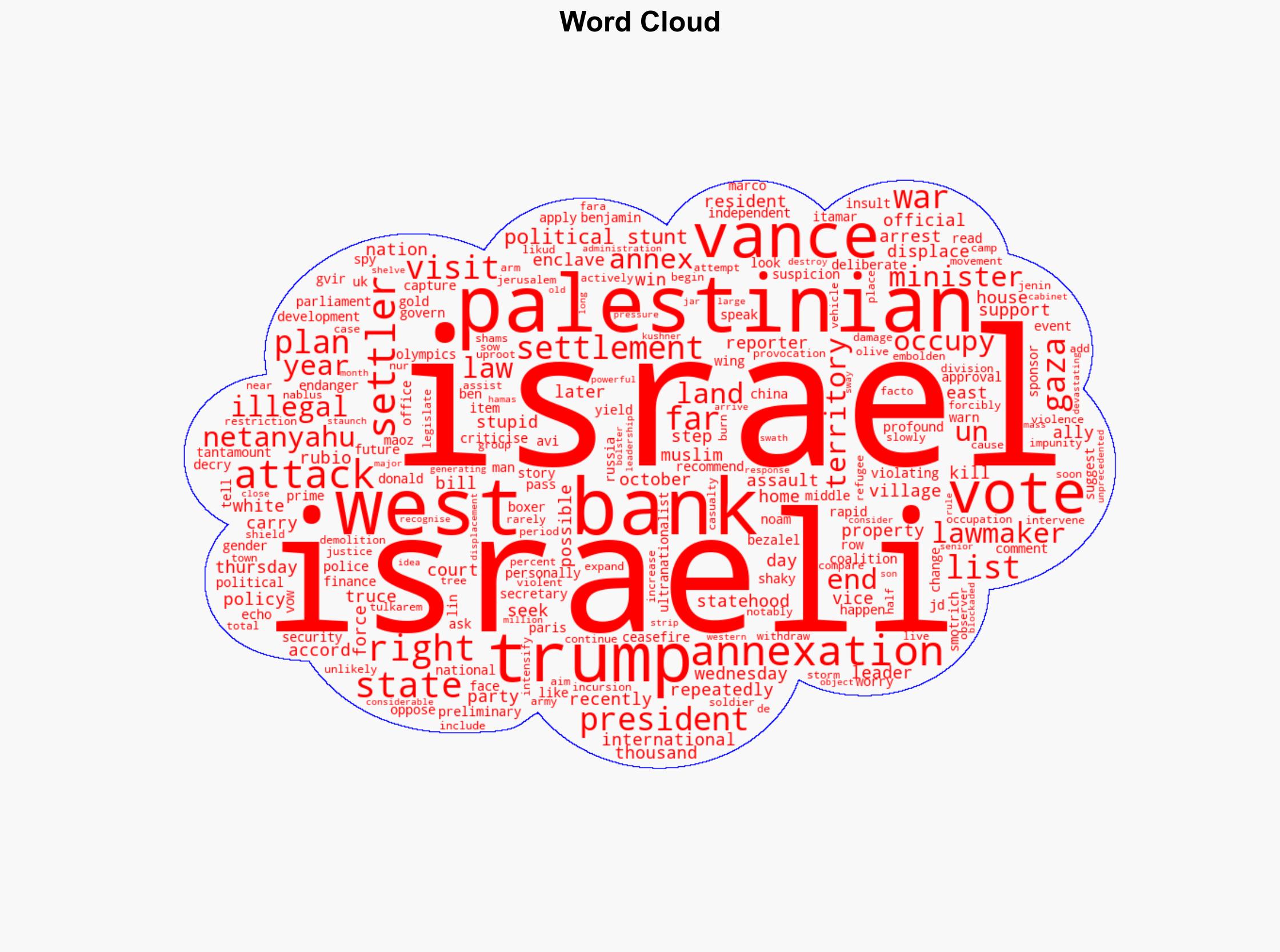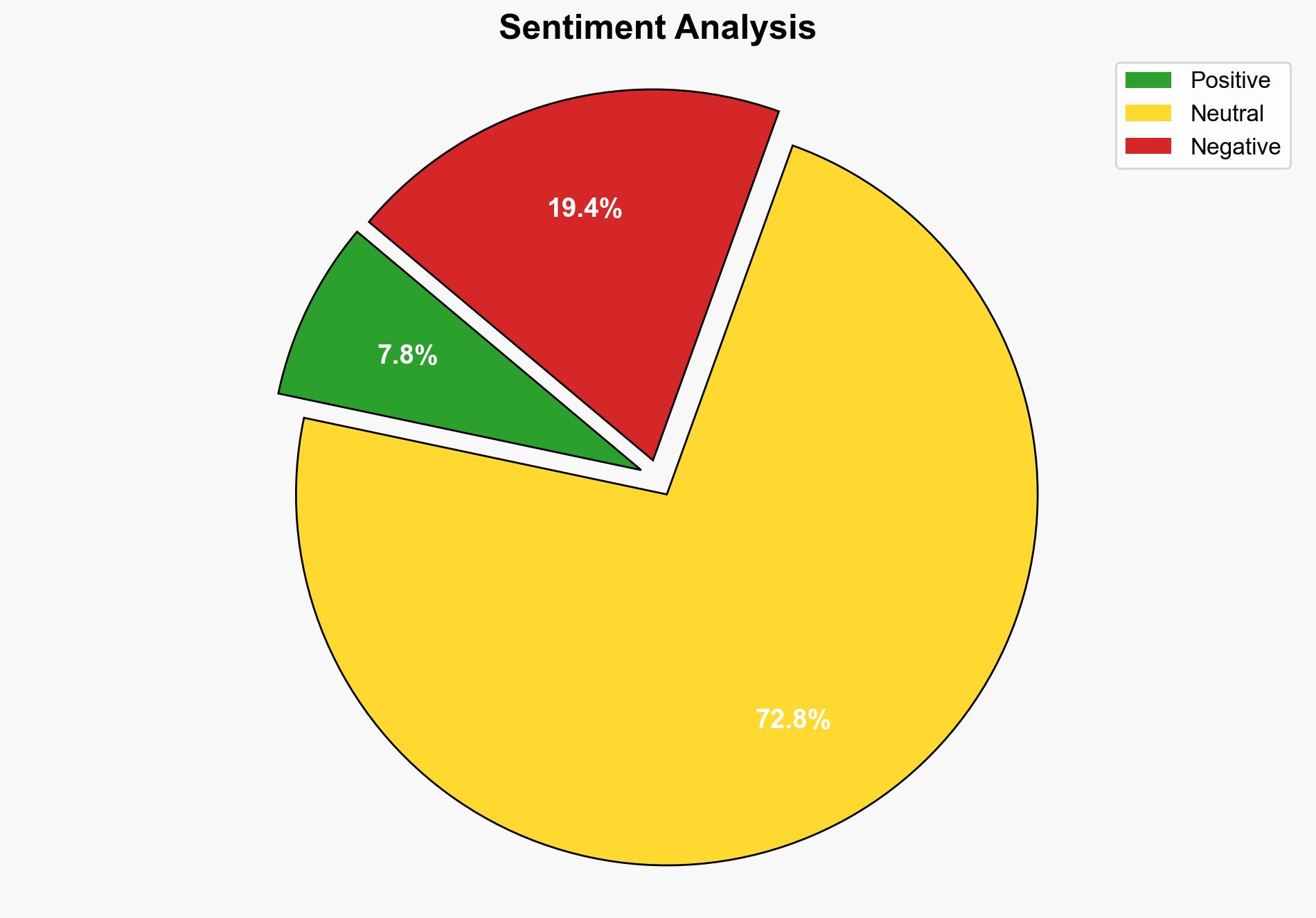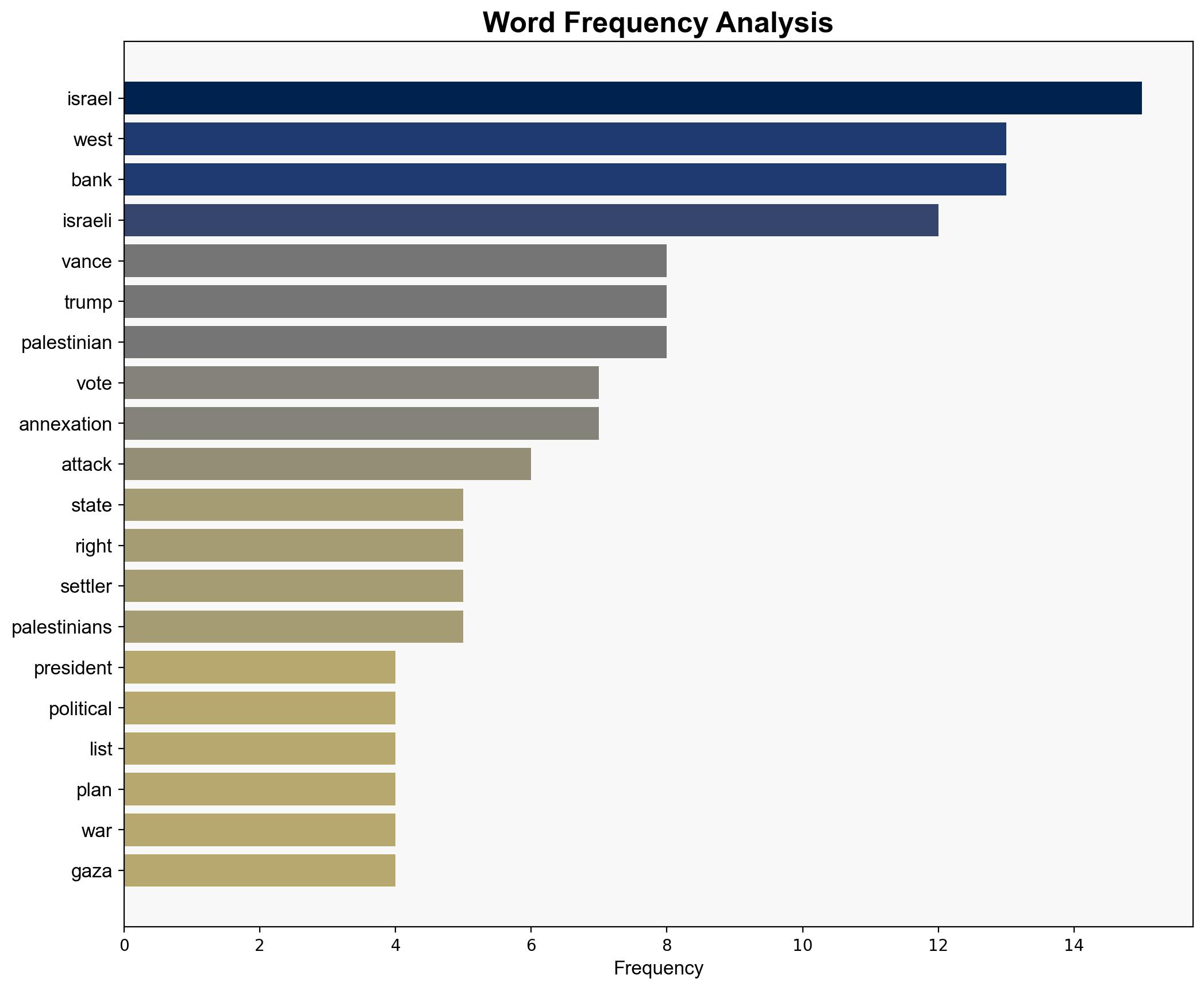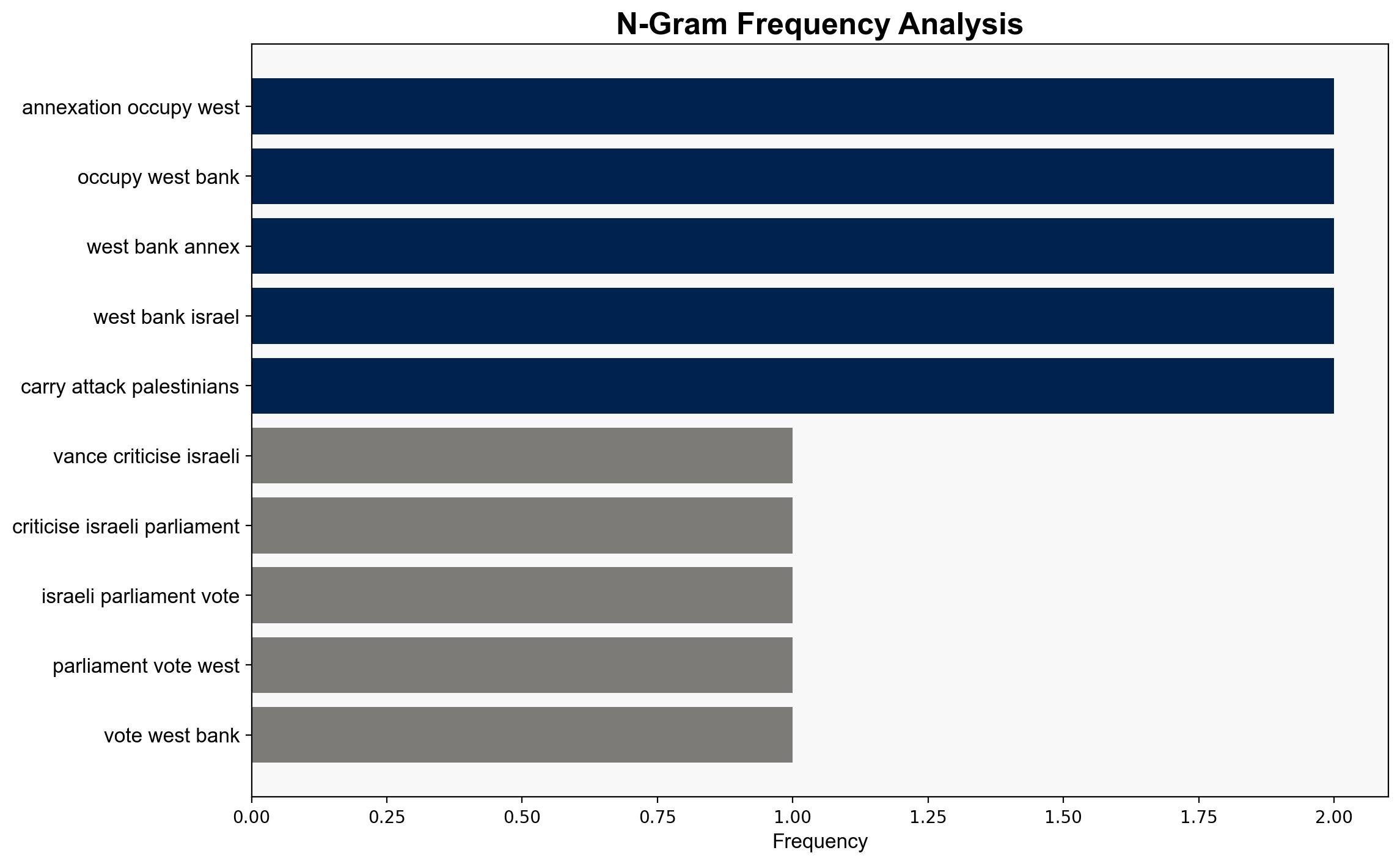Vance criticises Israeli parliament vote on West Bank annexation – Al Jazeera English
Published on: 2025-10-23
Intelligence Report: Vance criticises Israeli parliament vote on West Bank annexation – Al Jazeera English
1. BLUF (Bottom Line Up Front)
The Israeli parliament’s vote on West Bank annexation has drawn criticism from Vance, highlighting potential geopolitical tensions and internal political maneuvering. The most supported hypothesis suggests that the vote is a strategic move by Israeli lawmakers to solidify territorial claims, despite international opposition. Confidence in this assessment is moderate due to the complexity of regional politics and the influence of external actors. Recommended action includes diplomatic engagement to mitigate escalation and support for conflict resolution initiatives.
2. Competing Hypotheses
1. **Hypothesis A**: The Israeli parliament’s vote is a deliberate strategy to assert sovereignty over the West Bank, leveraging political support from far-right elements within the government to gradually implement de facto annexation.
2. **Hypothesis B**: The vote is primarily a political stunt aimed at consolidating domestic support and distracting from internal challenges, with no immediate intention of altering the status quo on the ground.
Using ACH 2.0, Hypothesis A is better supported by the evidence of ongoing settlement expansion and the involvement of ultranationalist figures in the government. Hypothesis B is less supported but cannot be entirely dismissed due to the potential for political posturing.
3. Key Assumptions and Red Flags
– **Assumptions**: It is assumed that Israeli lawmakers are unified in their approach to annexation, which may not account for internal dissent. The international community’s response is assumed to be uniformly negative, which may overlook nuanced positions.
– **Red Flags**: The lack of clear statements from key Israeli leaders on the long-term implications of the vote suggests potential deception or strategic ambiguity. The absence of detailed plans for implementation raises questions about the vote’s seriousness.
4. Implications and Strategic Risks
The vote could exacerbate regional tensions, potentially leading to increased violence in the West Bank and undermining peace efforts. It may strain Israel’s international relations, particularly with allies advocating for a two-state solution. Economic sanctions or diplomatic isolation could be considered by opposing states, impacting Israel’s economy and security.
5. Recommendations and Outlook
- Engage in diplomatic dialogue with Israeli and Palestinian leaders to de-escalate tensions and promote negotiation frameworks.
- Monitor settlement activities and international responses to anticipate shifts in geopolitical dynamics.
- Scenario Projections:
- Best Case: Diplomatic efforts lead to renewed peace talks and a halt in annexation activities.
- Worst Case: Escalation of violence and international sanctions against Israel.
- Most Likely: Continued political maneuvering without significant changes on the ground.
6. Key Individuals and Entities
– Vance
– Trump
– Avi Maoz
– Itamar Ben Gvir
– Bezalel Smotrich
– Benjamin Netanyahu
7. Thematic Tags
national security threats, geopolitical tensions, regional focus, Middle East politics





